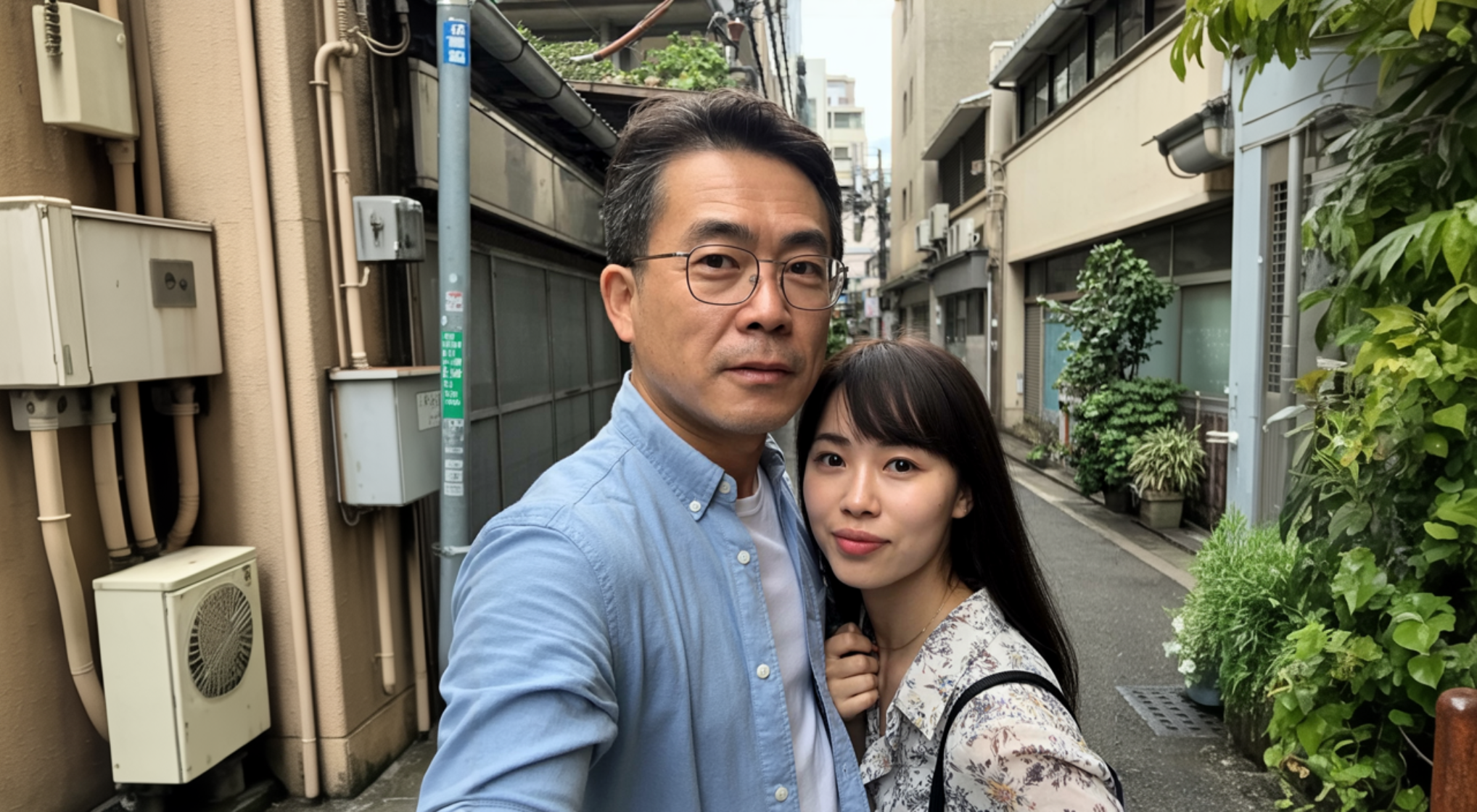In my seventh year living in Tokyo, I finally realized that I don't actually want to hire a "female secretary". What I truly need is someone trustworthy, language-savvy, culturally aware, and available for long-term cooperation. She doesn't need to clock in daily nor be an expert in finance or law, but she must be someone I feel comfortable entrusting with an untranslated document, an unreplied client voice message, or even a confusing life detail.
I have posted "Japanese secretary" job ads seriously on recruitment sites, talked with several freelancers about assistant services, and considered hiring language school teachers as consultants—but all of these ended up going nowhere for various reasons.
In the end, I found a solution that better fits my "non-typical needs".
This article is written from the perspective of an ordinary person living in Tokyo for many years, sharing with you who may have similar needs. Maybe your Japanese doesn’t feel natural, you don’t know how to write business emails, your social circle is small and you hate awkward small talk. If so, like me, you might also find this method more practical, more human, and a lot more comfortable than hiring a traditional secretary.
1. Why do so many people search for a "female secretary," only to end up failing?
"I need someone who can help me write emails in Japanese."
"I hope she can practice speaking with me and correct my use of honorifics."
"Best if she’s a Tokyo local who understands Japanese etiquette and also gets how foreigners speak."
I’ve heard comments like these more than ten times, mostly from fellow immigrants in Tokyo from China, Taiwan, or Hong Kong. Their careers range from tech, marketing, and trade to entrepreneurs. Yet the end result is usually:
Didn’t find the right person
Those found are too expensive, with inefficient communication
Tried working together a few times, then fizzled out
Later on, I realized—the problem is that "we misdefine what we really need."
We thought we needed a "secretary," but what we were really looking for was a language and culture assistant—someone "with a flexible persona," who can help, support, and doesn’t feel too distant.
A traditional secretary is task-oriented: "You tell me, I do it." But what we actually need is: "You don’t know how to say it—I organize the phrasing for you; you don’t understand the other party’s emotion—I interpret the real meaning for you." This job requires cultural understanding, language adaptability, and even some degree of personality compatibility.
And the traditional recruitment process simply can’t screen for this kind of person.
2. The three approaches I tried—and why they didn’t work
Method 1: Post part-time secretary jobs on recruitment sites
I tried searching for part-time Japanese-speaking assistants on sites like Craigslist and WorkJapan, making it clear in the job post: language support + translation + cultural advice. But the resumes I got were either generic templates that made no sense or Japanese students just looking to earn a bit extra but who had no idea what I truly needed.
One girl agreed to meet in person. We chatted for an hour at a coffee shop. I found out she was curious about language, but had no concept of the issues I was asking: "Do you think writing this email like this sounds too blunt?"
Her answer was, "I think it's fine."
That "it's fine" actually hid another layer of cultural meaning—she didn’t dare tell the truth.
Method 2: Using language school private tutoring services
I also tried hiring private tutors from language schools to help me rehearse speeches and edit documents. But the tutor’s role is “teaching”, not “assisting”. She wanted me to bring problems and she would answer; whereas what I actually needed was someone who would proactively point out where the issues were.
Also, most tutors were older, spoke slowly, and had a textbook-ish style—not equipped for the ever-changing situations of real life.
Method 3: Using freelance platforms to find translators or assistants
I also tried looking for people on Japanese freelance platforms like Lancers or Coconala, commissioning work like "Japanese reading partner + copyediting".
The problem: I had to re-explain my requirements every single time. The other person worked at their own pace, and what they wrote was "correct" but had no warmth. Not to mention—expensive, slow, and lacking trust.

3. Later, I found a more suitable way: a "language buddy"
At first, I didn’t expect this to work so well. A friend in Tokyo doing IT outsourcing told me he’s been using a site called yoitoki where he met a few friendly women willing to chat and help him improve his Japanese expression.
Skeptical, I signed up and set my preferences to learning business email and workplace honorifics, and selected Tokyo + women 20 years and older. A few days later, I got several DMs. One was from someone who liked writing, another introduced herself as a freelance copywriter who’s sensitive to cross-cultural issues between China and Japan.
I chose her.
4. How do we collaborate as "language and culture buddies"?
Her name is Rika, 22, from Tokyo, and works in social media operation.
At first we only chatted online; I would send her email drafts, which she’d revise sentence-by-sentence explaining, for example: "This wording is grammatically correct, but using it in business sounds too assertive."
Later, we communicated by voice, practicing phone conversations. She taught me the real nuances between "おそれいりますが" and "ご確認いただけますでしょうか", and would even mimic clients’ tone and habits for me.
Then, I asked her to help me prepare for a networking event, practicing small talk. She thoughtfully designed five "polite yet natural" openers, and even wrote me cue cards.
I began to realize she was, in a way I trust, playing the ideal secretary role for me—without the contractual burden of actually being a secretary.
I paid her a small hourly fee; most of the time we helped each other—she was learning Chinese, hoping to live in Taiwan someday. I fixed her Chinese resume and she helped me adapt to a culture and language completely new to me.
5. Language Buddy vs. Female Secretary: My comparison
| Aspect | Female Secretary (Traditional Hiring) | Buddy-Style Language Collaboration (yoitoki) |
|---|---|---|
| Collaboration Model | Employment Relationship | Equal Buddy Relationship |
| Time Schedule | Fixed Working Hours | Freely Negotiated |
| Cost | High monthly/hourly salary | Date-style pay, flexible |
| Work Content | Mainly admin tasks | Language expression + cultural insight + expression polish |
| Replaceability | High (easy to swap staff) | Low (better with long-term fit) |
| Relationship Warmth | Cool and Rational | Warm, human, expandable |
6. Practical tips for using the "buddy" approach
If you want to try this too, I suggest:
Clearly set your language goals , especially for contexts like Japanese email, business honorifics, or meeting speeches.
Carefully write your first outreach message —don't be vague, specify exactly what help you want, and state your willingness to help in return.
Start with short voice or text tasks , for example: "Could you help me revise this paragraph? I’ll pay." This lets her get a sense of your style and needs.
Choose women with writing or business backgrounds , e.g., former editors, translators, administrative assistants.
Maintain respect and boundaries : buddy relationships require even more trust than employment—don’t cross the line, but also don’t be too distant.
7. Conclusion: Finding a secretary in Tokyo is hard; finding someone who understands you is harder
This article has turned out to be much longer than I expected.
If you are also in Tokyo, feeling your Japanese will never sound natural enough, hoping someone reliable can help you improve and grow in language skills—and wanting this city to feel less lonely and rigid—I sincerely recommend giving the buddy approach a try.
You don’t have to use yoitoki, but it’s where I actually found someone who helped me.
She’s not my employee and not my teacher. She just happens to be someone who can chat, show me how to express myself, and—standing in my shoes—tell me what "sounds natural."
And that, in all my years living in Tokyo, is the rarest and most precious thing of all.



